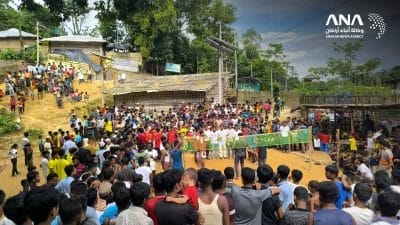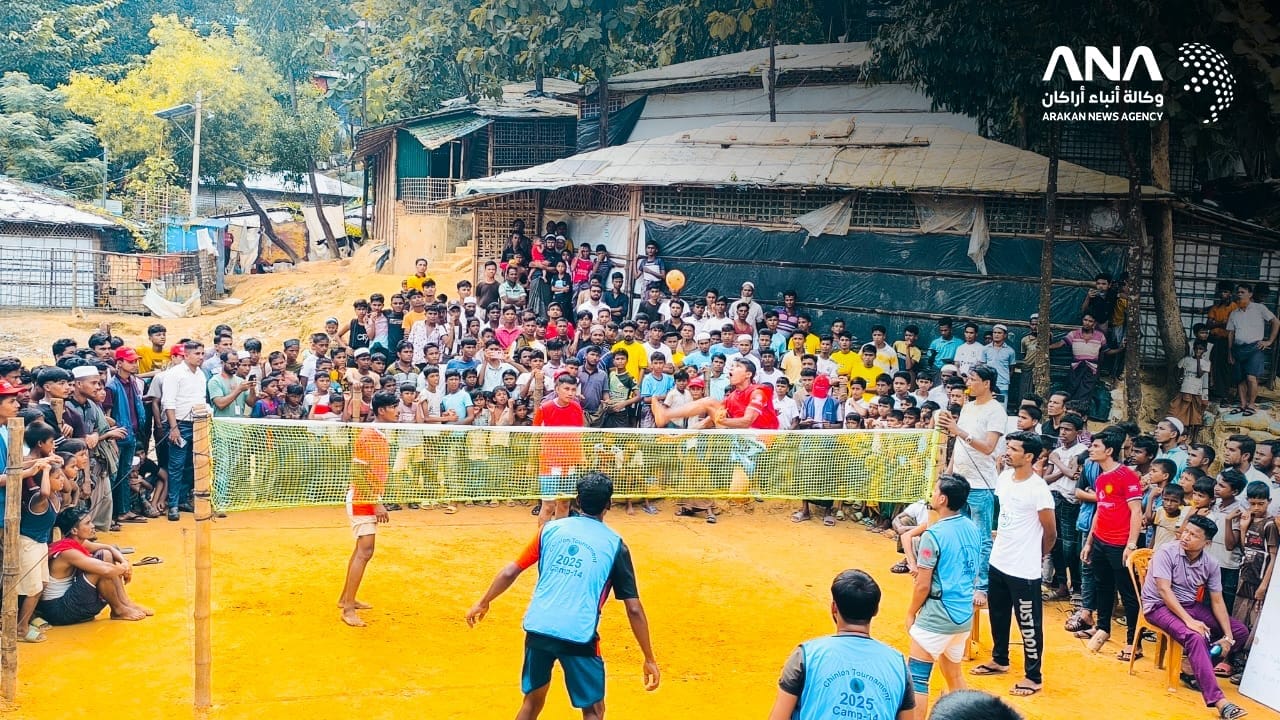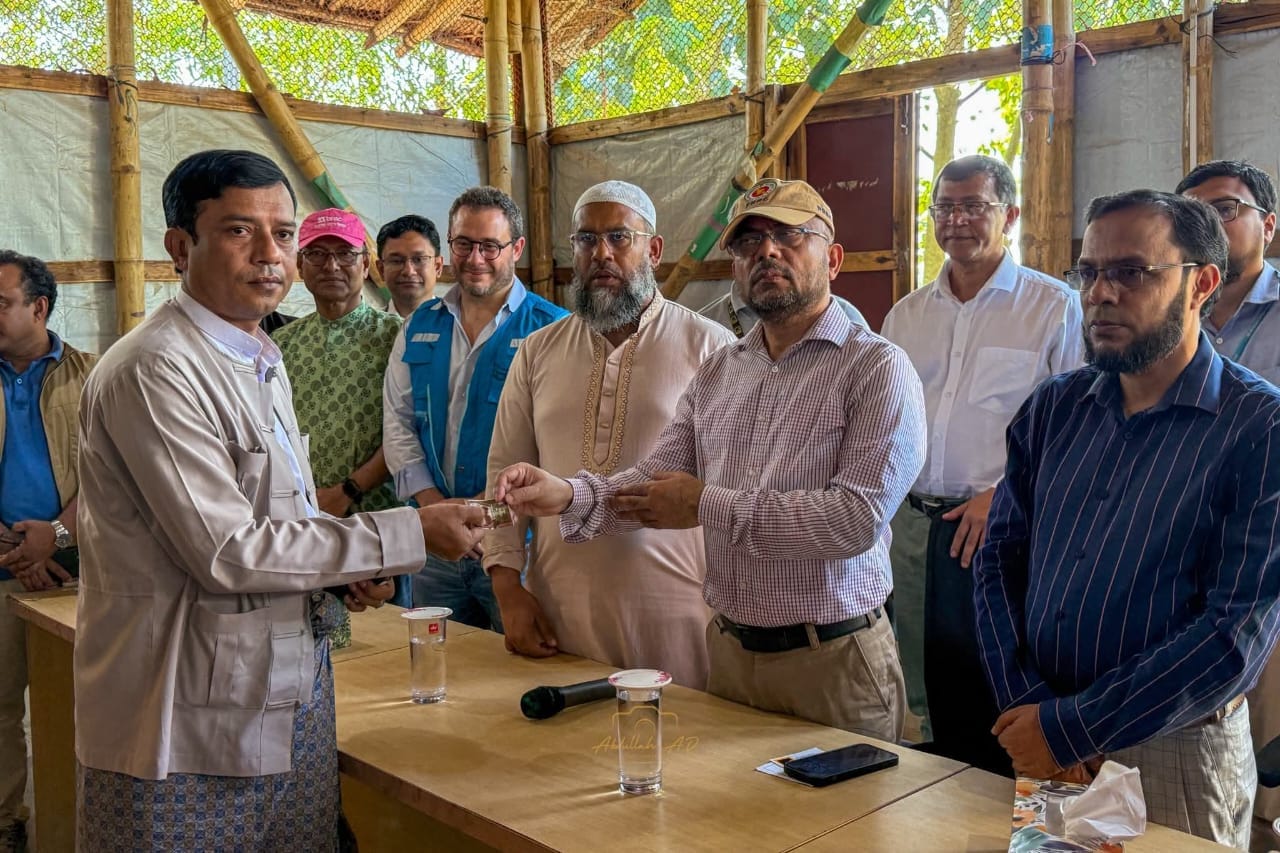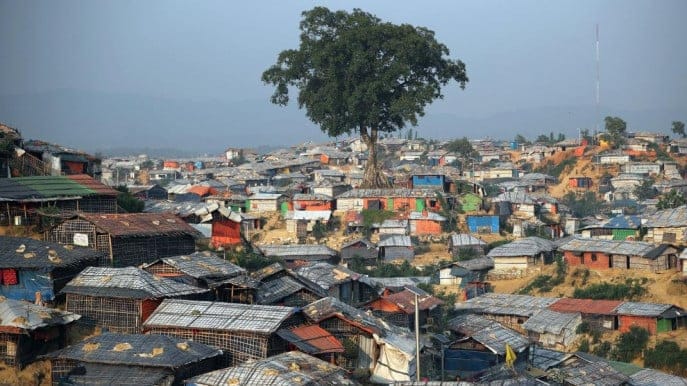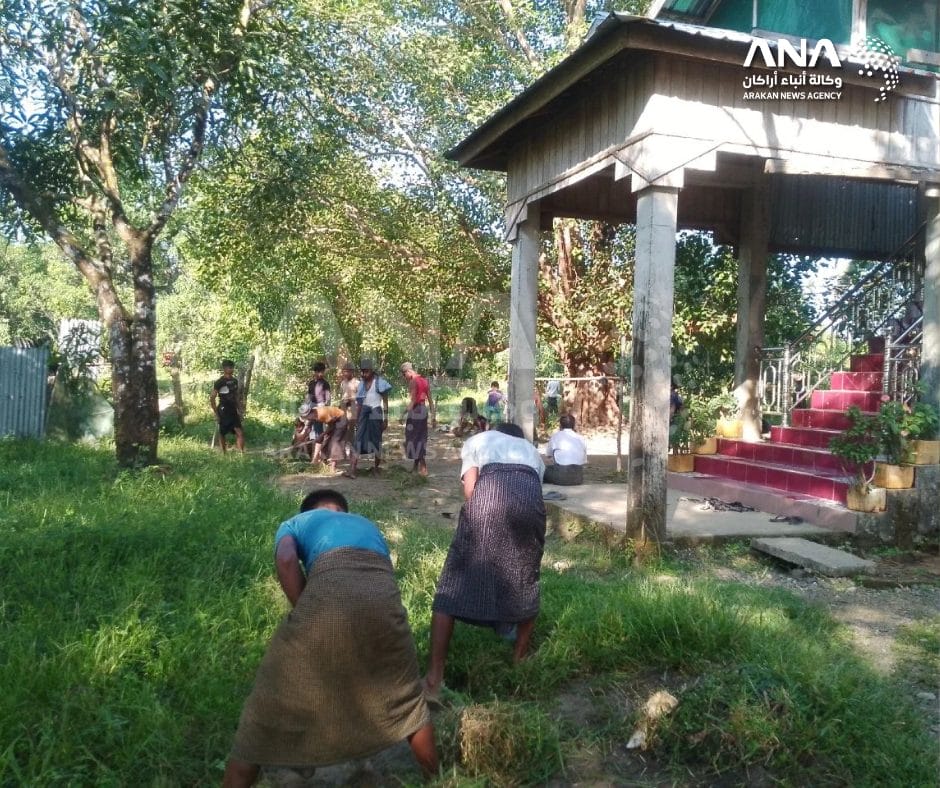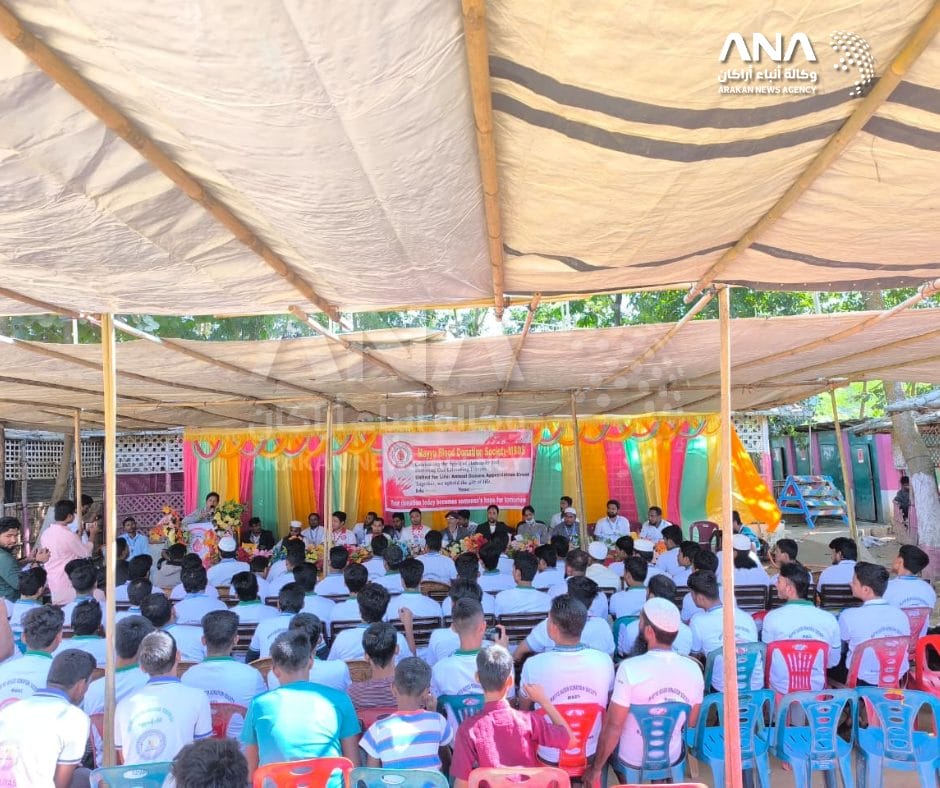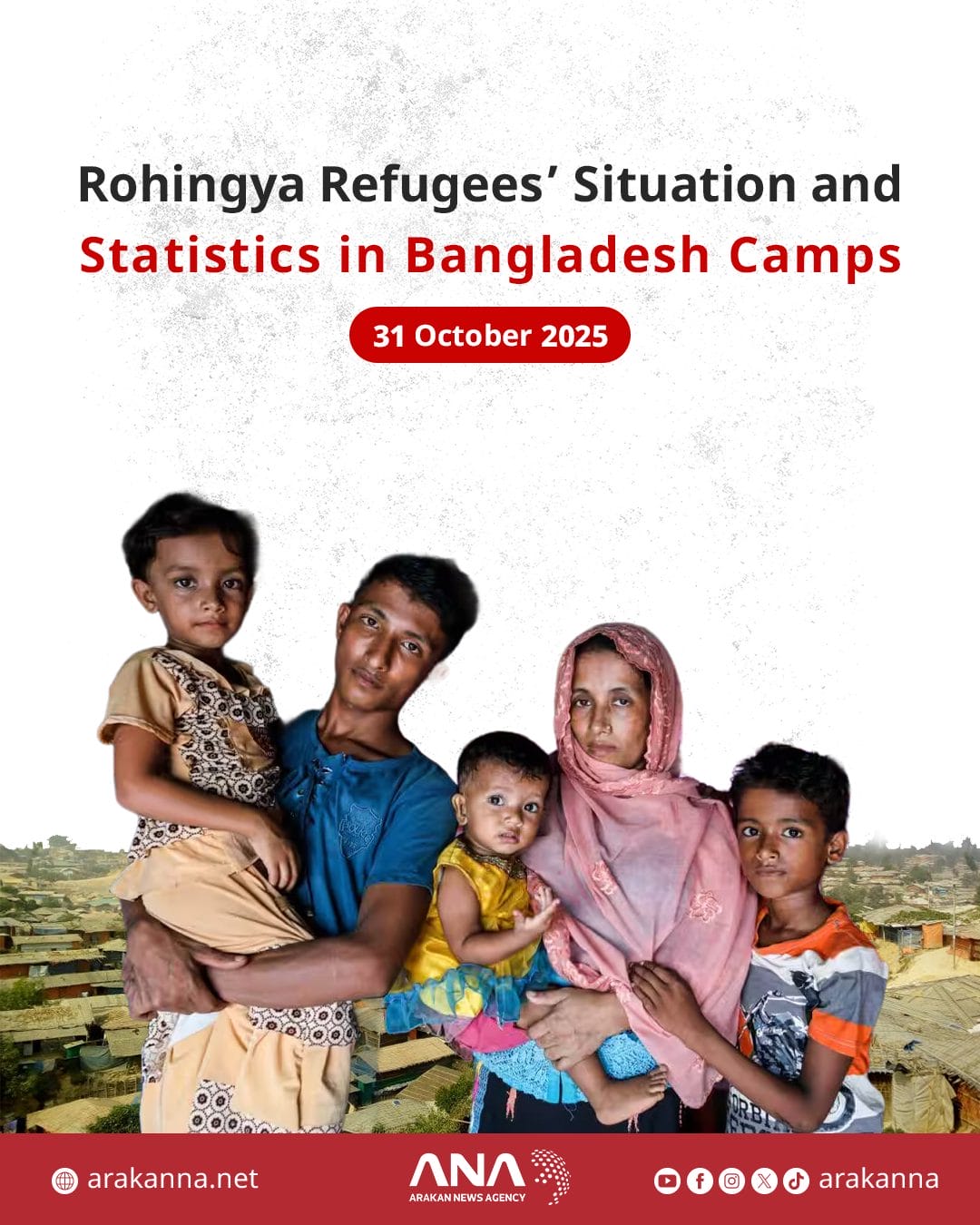Arakan News Agency | Exclusive
The traditional game “Chinlone” has emerged in the Rohingya camps in Cox’s Bazar, Bangladesh, locally known as “Sallun” or “Sillun,” as a source of happiness and unity, having transformed into a group activity that alleviates the suffering of displacement.

The game relies on keeping a bamboo ball in the air without using hands and has attracted young people, children, and adults alike, becoming an opportunity for entertainment, stress relief, and a communal celebration in the face of the harsh life inside the camps.
Although “Chinlone” is associated with the heritage of villages in the Arakan State in western Myanmar, it is being revived in the alleys of the camps today, embodying a cultural link that enhances refugee identity and collective spirit.
Recognizing the importance of entertainment for the youth, the Commissioner for Refugee Relief and Repatriation, Mohammad Mizanur Rahman, organized official tournaments for the game, aiming to engage young people, boost their confidence, and instill values of teamwork and discipline.
Responses within the camps indicate that these initiatives have provided a healthy alternative to idleness, contributed to distancing youth from risks and negative influences, and highlighted physical, psychological, and social benefits while preserving an ancient heritage that links the Rohingya to their original homeland.
Bangladesh hosts over a million Rohingya refugees in the camps of the Cox’s Bazar area, classified by the United Nations as the largest refugee camp in the world. The refugees have been living in difficult humanitarian conditions since fleeing Myanmar in 2017 due to the “genocide” campaign launched against them by the Myanmar army. Their situation worsened after renewed fighting between the Myanmar army and the Arakan separatist army in November 2023.
